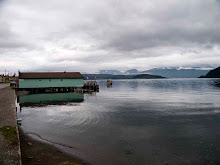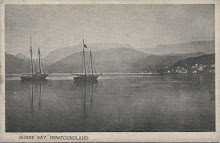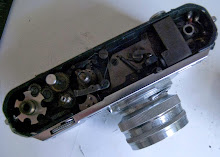Casey House Artist's Retreat
Artist in Residence Programme Conche
I am interested in the idea of sense of place and what forms it. this could be because I constantly wonder what would have been if I had stayed in Baltimore Maryland - Colony of Avalon 2 - where I am the fourth generation of my family to have been born there, rather than passively deciding to go to college in the US Midwest, even though away now for 35 years I still see the move as temporary.
For the past decade, I have been visiting and travelling about Newfoundland seeing how others answer the question. At first it was the community created by people thrown together in St. John’s. This community seemed closest to my psyche, the people I met - be they those from off the Avalon or true Comes From Away - seeing themselves defined as exiles awaiting the call back “home”.
The more I have been travelling the island - I had hoped to make it to Labrador but bad planning on my part had me postpone the trip - the more I have become interested in not those who leave but those who decide to stay.
I don’t want this to sound overly romantic, in fact I don’t want it to sound romantic at all, but it is my opinion that in outport Newfoundland one has to concretely decide to stay. Because of this I find not only a strong sense of community but also more self sufficiency than one finds in populations three and four times the size of these communities.
Where the natural choice of moving away - as, it seems has been the policy of the province since the resettlements of Joey Smallwood through the consolidations of government services to more centralised cities to the boom of the Avalon from oil, financial security would warrant - seems the sound choice, I have been interested in what has people staying.
My interest in sense of place has become more intense with the recent resettlements of Great Harbour Deep, a community near Rose Blanche, and now Grand Bruit, but also equally importantly with people now returning - via ATV’s - to places like Chimney Cove for cabins and summer use. As an aside, this idea of place and community had led me to gravel pit camping until it ended this month.
The idea was complicated by deciding to see how remote the Rock is by driving but driving slowly making it to the eastern most piece of land before the waters that separate the mainland - and Cape Breton - and the island - Gaspésie, Île Miscou, East Point P.E.I. and the Cape Breton Highlands.
During the drive I realised that there were parallel senses of place - anglophone and francophone particularly in Acadie. This questioned my idea of Newfoundland, which seemed to be more tied to the English and Irish - as it seems Conche is - than the French and Basque. While I had seen the tricolor terre-neuvien, it was overwhelmed by the pink white and green, the union jack and the new provincial flag. Tuning the radio, I saw that Radio Canada comes from the mainland.
Acadie seems to cross the maritime provincial borders, where it seems that francophonie in Newfoundland is separate and quite hidden even along the French Shore.
My curiosity had me planning on travelling the Port-au-Port Peninsula, researching the idea of sense of place with the added wonder of a parallel - actually two as I saw signs in Mi’kmaq - community.
I did speak to a person at Port-au-Choix questioning him about francophonie and me mentioned Conche but time was limited.
When I was told about the artist retreat in Conche, I have been trying calmly rationally write to apply. This would be ideal for me. While in my official work, I tend to photograph objects as representations of habitation, give and take – human contact has become an important part of my process, being available, showing what I am doing to those where I am in the hopes that I my visual story telling will generate verbal recollections of the area, which then sends me out with a new understanding.
Being able to stay in a place for a length of time, seeing and allowing to be seen is important in my process as I visually work through my prejudices, to the more subtle. I find this exceptionally hard in Newfoundland - perhaps the reason that I keep returning - as I find layers that when left to themselves can be dismissed as, say decay, nostalgia etc, when I am speaking of a continuity and adaptation to preserve community.
Explaining my working method concretely as for the most part photographers unlike other visual artists usually “note-take” while in an area the finished work only being seen once the photographer has access to a studio or lab. It being important that what I do be seen in the place where I am working, traditionally I have brought an exceedingly large camera with me – 10x8 inch negatives – so that I could develop the images and make decent sized prints – using processes that don’t require a darkroom – platinum – so that I can show rushes immediately. While I may modify my working method a bit – still using film but scanning and printing the work via an inkjet printer – it is still imperative that the work influence more work via conversations with those who see it – than somehow editing what I have done when I am no longer in the community.
It is my working method when I am more in transit.
I am obviously interested in the artist’s retreat in Conche but also in Conche specifically being situated at the end of the road some twenty odd kilometres from Roddickton. One doesn’t choose to pass through Conche. Specifically Conche as it has a working harbour, it is centrally - well - located so I can make extended visits to Englee and the towns along route 438 again searching for senses of place.
Thanks in advance for looking over this overly long letter, I apologise for its length.
Science and Art
-
The teaching of the sciences and the arts needs to be conjoined and
sustained from the earliest stages of education. In the Foreward to
Platinotype my frie...
2 years ago






No comments:
Post a Comment